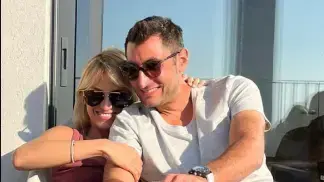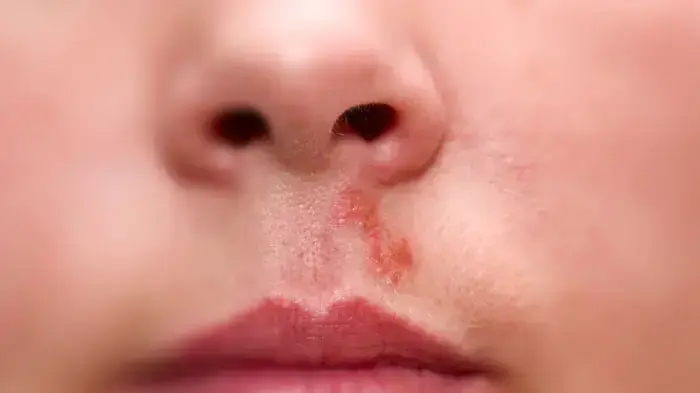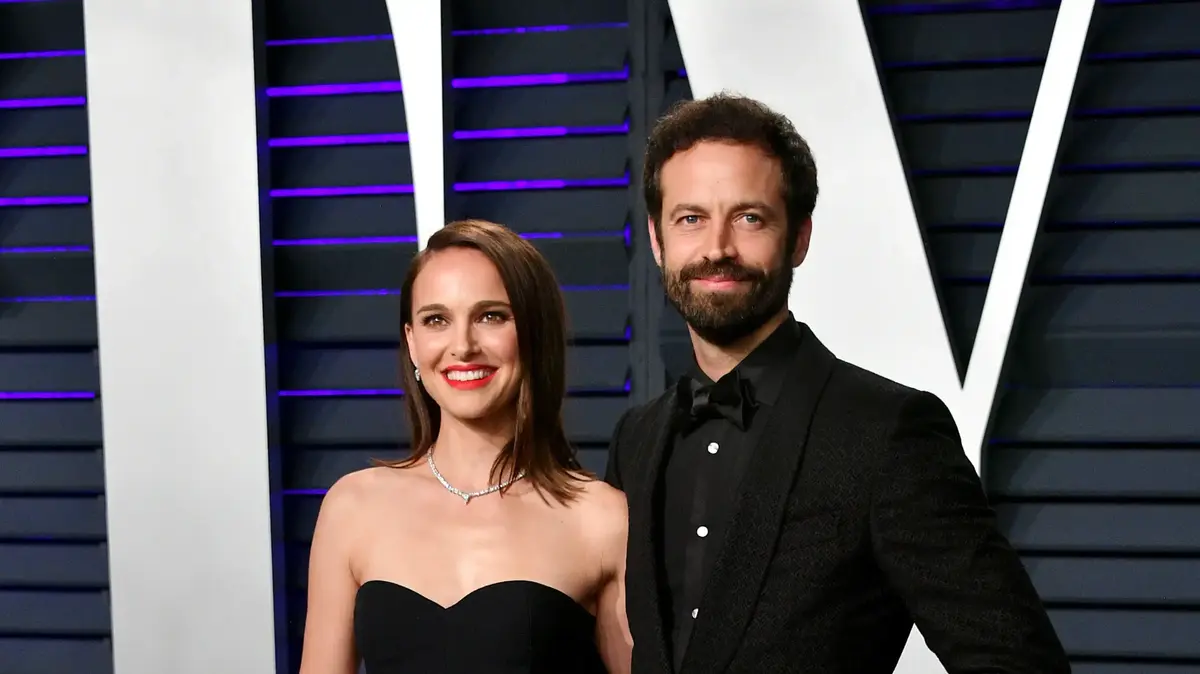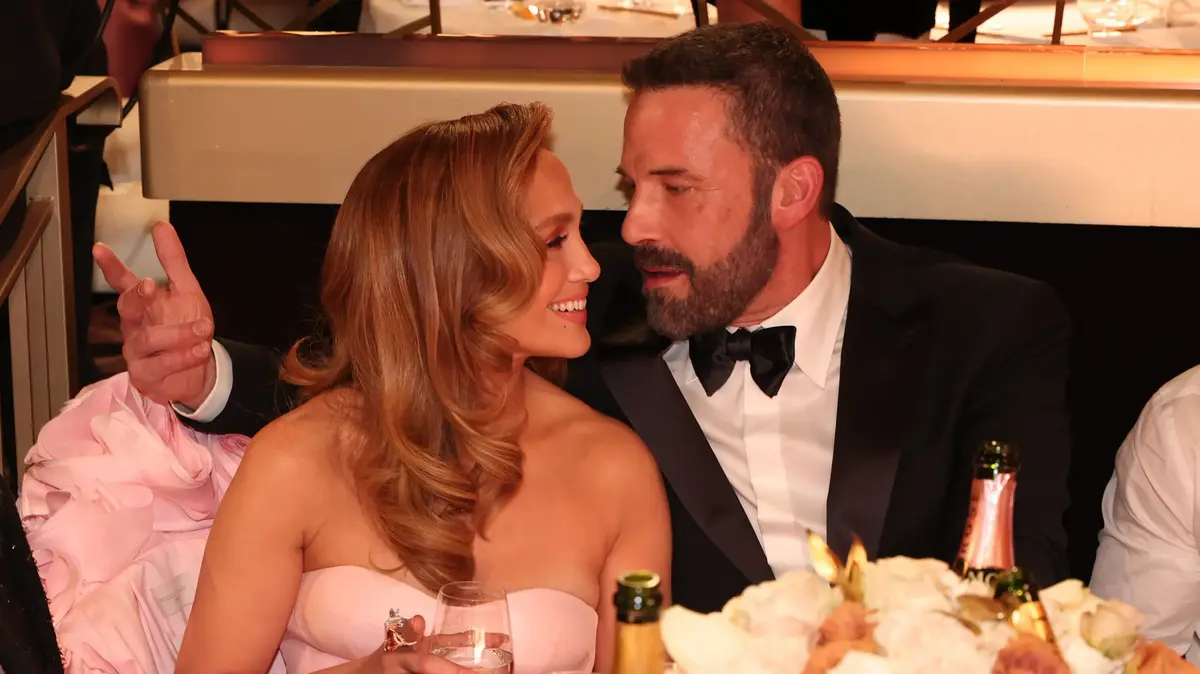Years later, I still tell the story of my first date with Corey to students in my Research Methods class to help them remember the
concept of regression to the mean
:
how something extreme on a first measurement becomes less extreme, or regresses to average, on a second measurement.
It's one of the reasons we congratulate ourselves on finding a great new restaurant, recommend it to all our friends, and then find it
lackluster on our second visit.
Sadly, it's
statistically normal
for an average experience to follow an exceptional one.
After Corey walked me home that first night, I felt dizzy with the attraction I felt to this stranger.
He had walked into the bar wearing a cap, hooded sweatshirt, and baggy jeans, and his smile revealed that he was missing two front teeth.
Some time ago I heard on the “Hidden Brain” podcast that it takes a 40-year-old person
several months
to laugh as much as a child in a single day.
That night, Corey gave me the thickness of a child's laugh, and I ran up the steps of my house whispering:
Please don't let this be a regression to the mean.
It was not.
On our second date, we walked miles across Philadelphia to eat grilled green beans at Grace Tavern.
When I cleverly dodged a possible argument, he grabbed my hand and said:
"I came to meet Sarah, not Sarah's representative."
We walked home more slowly, down the sidewalk of Spruce Street strewn with wet yellow autumn leaves.
On our third date, we sat on my couch and awkwardly talked about likely sticking points in our past and future selves.
He was a passing artist who lived above a skate shop and had grown up listening to hardcore punk.
I was a psychology professor and a single mother who grew up listening to hymns.
Aware of our differences, he left earlier than perhaps either of us wanted.
But on our fourth date, again walking around the city, he told me that he was not going anywhere, that
I was where he wanted to be.
Corey introduced me to Pearl, his affectionate pitbull, whose over-the-top greetings were the cause of Corey's missing front teeth.
He won my two young sons over on their first meeting when, while we were waiting for food in a cafeteria, he took the crayons my 8-year-old offered him and turned the butcher paper table cover into a sprawling city. .
I refused to talk on the phone for a month after we met, fearing that without the body language my social awkwardness would be too much for him.
I later learned that he convinced his friends to deep clean the skate shop and his tiny apartment before my first visit, fearing my reaction to the typical antics of single
skaters
.
From there, our lives unfolded together.
I met his best friend, Becky, at a late-night party above a bar in Old Town, and we drove fourteen hours one weekend for him to meet the friend who had demanded power of attorney from me
.
for my new relationship after my divorce.
Corey spent New Years Eve playing board games with my kids and teaching them how to solve a Rubik's cube.
I'd grade papers behind the skate shop's cash register, watching the staff put price tags on stickers that would find a home on stop signs all over town.
He made me vegetarian jambalaya.
I learned that athletic shoes are not “just shoes”.
We made jokes about worlds colliding, and we laughed and laughed.
Months later, while we were in the kitchen above the skate shop chopping vegetables, pears, walnuts, and Gorgonzola cheese, Corey said he'd like to grow old by making salads with me.
Then
came the rings and a baby.
It wasn't always easy.
Although we laughed at our different backgrounds, we brought deeply conflicting expectations to the marriage.
I insisted that no age was appropriate to play "Grand Theft Auto" and I didn't understand why a grown man would want to play video games anyway.
He didn't understand why I spent months doing experiments to satisfy my academic curiosity instead of using my training to
solve pressing
real-world problems.
I got up early;
he stayed up late.
For me, being outdoors was essential;
Unless Corey skated, he didn't like anywhere with bugs or dirt.
I was silent before the strong and direct discussions;
he was frustrated with the way I buried my feelings in nuanced discussions.
And after our son was born, we weren't immune to discussions about
domestic discomforts made worse
by lack of sleep.
But even on days when my journal was full of frustration, the last thing I wrote was always something about gratitude for my husband and our life.
Because?
Because he looked beyond the words that I believed to be my essence and saw my body;
he instinctively massaged my hunched shoulders without my needing to express my stress.
Because even though I'd made peace with my lack of physical charm, Corey's look said that somewhere in me was the
ability to dazzle.
But mostly because of this:
I have spent my whole life wondering why, doubting, saying: "Yes, but...".
That has made me an excellent scientist and a terrible romantic partner.
With Corey, my brain stopped at "yes."
And how I loved our son!
After the startling discovery that the boy would calm down even during his worst crying spells when he saw school buses, Corey would park outside the “bus zoo” near our house at dawn so they could watch the procession of school buses leaving for school. his morning walk.
Three days a week, wearing a baby carrier, beanie, baggy jean, and sweatsuit ensemble, Corey would take the baby to the grocery store, skate strip, and home improvement errands.
And where I saw a tedious complexity in synchronizing an ever-changing nap routine with older children's school schedules, he saw
beauty in the rhythms of a family life
that he never had as a child and never expected to have as an adult.
On the night of Corey's 40th birthday, shortly after our son turned two, we stayed up long after our friends came home.
I rested my head on Corey's chest as we laughed at the noisy confusion of our lives and marveled at our great luck in finding each other, at our ages, across such a difference.
And the next morning, our world changed.
I came back from the bus stop to see my husband on the porch, his face contorted, complaining of a numb foot.
I took him to the hospital.
Strangely, I couldn't understand what the nurse told me after they took him out of the car.
His eyes were impossibly blue.
A clump of mascara on her left eye made one set of lashes stand out awkwardly from the rest.
However, I understood that a kind social worker was taking my son away.
I understood the chest compressions and the frantic activity I saw through the window the nurse had led me to.
Hands on his chest.
Hands holding shovels.
And I understood what it meant for that activity to cease.
The poet WS Merwin wrote:
“Your absence has pierced me like a thread through a needle.
Everything I do is stitched with its color.”
My oldest son, now in college, can still solve a Rubik's cube.
My second son wears a hat and flannel to school and asks to bring his skateboard on all summer outings.
Months after Corey died of a heart attack, I found an album on his phone labeled "heart" with photos of me:
bent over the table, in pajamas, reading;
looking out the window with the baby;
covered with earth while she prepared the garden beds.
And of our son.
Our son is 9 years old.
When he stumbles on the sidewalk, he is more concerned with the dirt on his hands than with his bloody knees.
One night at dinner, he asked me why my words said that I was happy when my body said that I was sad.
His laugh starts in his tummy and spreads to everyone else in the room.
And every night, when I read with him before bed, I look at the unruly lock of hair that falls over his eyes and hope it's true what the studies say about how, even if you don't remember them, those first two years of
your
life mold.
They teach you to think of the world as safe or threatening, to see a stranger as a potential friend or foe.
Because, if that's true, then our son will have his father with him all his life, and those many trips to the "bus zoo" and the skating center, after teaching him that the world is full of love, that every squeeze it's a time for laughs and that every stop sign needs a bumper sticker.
c.2023 The New York Times Company
look also
Modern Love: Here lies an odd couple, together for all eternity
Modern Love: No love is ever wasted












/cloudfront-eu-central-1.images.arcpublishing.com/prisa/KMEYMJKESBAZBE4MRBAM4TGHIQ.jpg)


